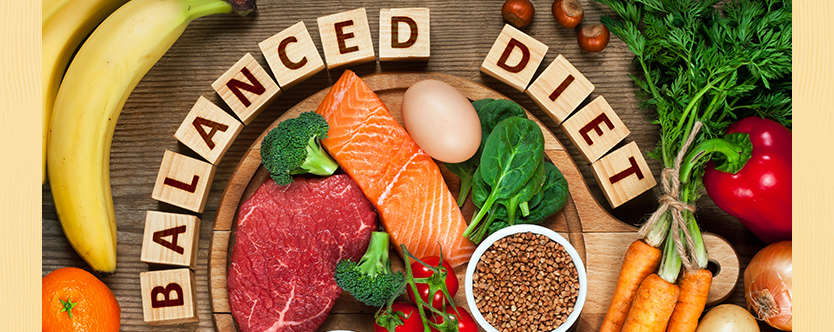
Connection Between Diet and Type 2 Diabetes
Type 2 diabetes is an affluent disease which precipitates due to an urban lifestyle, little or no exercise, eating refined foods, poor stress management and excessive drinking. Your diet and type 2 diabetes go hand-in-hand. What you eat plays a major role in managing the condition.
When you eat a lot of desserts, white bread, pasta, white rice, maida biscuits, pizzas, burgers, pastries, naans, rumali rotis, noodles and other highly processed starches and restaurant foods, 3-4 times a week, your ability to utilise insulin gets hampered and you become prediabetic.
At this juncture, you can develop high blood pressure, atherosclerosis, obesity, high cholesterol, high triglycerides and type 2 diabetes. A high triglyceride reading coupled with a low HDL reading implies prediabetic conditions known as insulin resistance. This condition leads to premature and unnecessary ageing, affecting your heart, your arteries, (giving rise to blood pressure) your liver, eyes, extremities, your appearance, your moods, your emotional state almost everything.
The Solution
Even if you are genetically prone to getting type 2 diabetes, you can postpone the problem or not precipitate it at all if you choose to eat sensibly and exercise regularly. Sugar and fat, both have a depressing effect on your immunity. They interfere with your body’s soldiers’ (white blood cells) ability to attack and destroy invading pathogens.
The negative effects of fried foods and sugar can last for more than 12 hours. That means your body is fighting a losing battle for those 12 hours, which causes further degeneration. The fate of every cell in your body is decided at the end of each day according to what you choose to put in your mouth.
Diet and Type 2 Diabetes
There is no special diet for people with type 2 diabetes. However, listed below are some diabetes diet tips, which can help manage blood sugar levels.
1. Avoid refined foods such as white rice, maida, dessert, soft drinks, chocolates, sugar and foods rich in fat.
2. Increase fibre in your diet. You can do this easily by eating whole grains, whole pulses, nuts, seeds, fruits and vegetables. This apart, you can also take 1 tbsp of isabgol daily to increase fibre intake.
3. Eat some sprouts every day. They are rich in protein, calcium and nutrients that help increase immunity and balance blood sugar.
4. Stress promotes disease states in the body. It depresses immunity and produces a hormone ‘cortisol’, which can slow down your immune system. Stress triggers free radical damage and can upset blood sugar, making you age faster. You can control stress by using relaxation techniques like meditation, pranayama, yoga or by listening to music or taking a short holiday.
5. Take some antioxidants like vitamin A, C, E and selenium. They help protect the body against unnecessary ageing.
6. Certain minerals like zinc, chromium, selenium and magnesium help to control blood sugar imbalances. Discuss this with your doctor if you are a diabetic.
7. Certain herbs available in pharmacies are especially good to control diabetes. These herbs are made from Karela and Neem. A syrup made from Jamun is another such herb which helps to control blood sugar. You may have to gradually reduce your dosage of diabetic medication after consuming these. Check with your physician before doing so.
ANJALI MUKERJEE, Nutritionist, Founder Director-Health Total, having health centers in Mumbai, Delhi, Bangalore, Pune -manages obesity & other health related disorders. Contact numbers: 96506 84061/+91 86575 61727 For further information, Visit www.health-total.com
